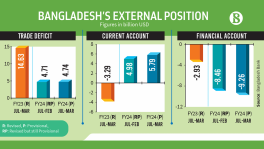In Putin’s Russia, the past is never past
Memorial is the latest victim of Russia’s history wars

At the Russian Supreme Court in Moscow, the country's oldest nongovernmental and best-known human rights organisation—Memorial—is fighting for its life.
State prosecutors have brought a case to close it down, alleging violations of a controversial law regulating the work of nongovernmental organisations (NGOs) in Russia.
But the verdict, which could come as early as Dec. 28, will decide much more than the fate of Memorial, which documents the crimes of the Soviet regime and commemorates the regime's victims. At stake is an even bigger question: Who in today's Russia has control over the past?
Memorial was founded in the waning years of the Soviet Union by former dissidents—including Nobel Peace Prize laureate Andrei Sakharov—and victims of Communist-era repression, their families, and others who simply wanted the truth about the regime's crimes to be known, including the deaths of an estimated 1.5 million people in the brutal system of labour camps known as the Gulag.
Memorial's researchers and supporters dug through archives, created databases, interviewed victims and perpetrators, and organised conferences and exhibitions. They exposed the crimes of the Soviet security services and the criminals in their ranks.
During the tenures of Soviet premier Mikhail Gorbachev and post-Soviet Russia's first president, Boris Yeltsin, Memorial's activities were broadly in line with official policy. Soviet crimes were to be exposed, even if it needled what remained of the Soviet security services.
Under current Russian president and former KGB agent Vladimir Putin, things changed: The security services regained their lost power and started to influence Kremlin policies again. Now, they are taking revenge on Memorial.
The motivation for crushing Memorial is quite simple: Too much light on past repression, the Kremlin fears, could lead Russians to question the government's present-day activities.
Prosecutors allege the organisation violated sections of a controversial law designating it and many other NGOs "foreign agents" for having accepted donations from abroad. The law obliges NGOs to include a 24-word disclaimer, in capital letters, before anything they write, including every comment on social media.
Witnesses for the prosecution claim to have found "psychological and linguistic signs" in Memorial content justifying organisations designated as terrorists by the Russian government. They also allege "approval of extremism."
Many observers in the West are misreading the effort to close down Memorial as rehabilitation of Communist repression and a step back to Stalinism—or at least a glorification of Stalinism in line with new school books that whitewash Soviet history and portray Stalin favourably. That, however, is not the principal motivation for the government's efforts to shut Memorial down.
The real issue is the rivalry over memory, which the Kremlin would like to monopolise. The memory of World War II has already been declared a matter of national security, where only the glorification of the Soviet war effort is allowed and efforts to diminish it—or compare the Soviet and Nazi dictatorships—are punishable by fines or imprisonment.
Now, even the memory of Soviet-era repression is moving in that direction, making it the preserve of the security services. Since it was their direct predecessors who carried out the repression, the security services have, in effect, been entrusted with overseeing the memory of themselves.
Their motivation is quite simple: Too much light on past repression, the Kremlin fears, could lead Russians to question the government's present-day activities, including the jailing of opposition politicians, repression of civil society, and harsh new laws against independent media and NGOs. And the most direct link between past repression and today's is the Russian security services—the most unreconstructed successors of the Soviet security apparatus.
The Russian authorities do acknowledge some victims of past repression. Within walking distance of Memorial's Moscow office is the state-run Gulag History Museum. Elsewhere in central Moscow, the Wall of Sorrow was erected in 2017 as an official monument to the victims of Stalin-era political repression.
In front of Lubyanka—the notorious headquarters of the KGB where the renamed successor agency, the FSB, still resides—the Solovetsky Stone remains in place. In 1990, Memorial brought the stone from the Solovetsky Islands, home to some of the harshest Soviet-era labour camps, to Moscow to commemorate the camps' victims.
And no one interferes with prayers at sites of mass executions; churches have been built to honour victims; Alexander Solzhenitsyn, the author of The Gulag Archipelago, is studied in Russian schools; and television series have documented Soviet political crimes.

Memorial's problem is not that commemorating these crimes is taboo, but that it is competing with the Kremlin in an area of history that the Kremlin considers its own. Even Putin has written several articles about this part of Soviet history.
And while Memorial exposes the perpetrators, today's Russian state prefers silence, lest ordinary people think the Soviet security services' successor agencies are capable of similar injustices and crimes.
The Kremlin's desire to keep the crimes' perpetrators shrouded in mystery is one reason why it is so hard to get access to the files of victims in historical archives. The files could reveal the names of the investigators, judges, and others involved in the cases.
The Kremlin's position is that the victims died for the glory of the country. Looking too closely at the perpetrators and their methods could open old wounds and raise uncomfortable questions.
As a repository of accurate, archived information, Memorial is an obstacle to the Kremlin's wish for a centralised memory of Soviet repression—one that papers over any conflict and minimises continuity between the Soviet Union and today's regime by conveniently ignoring the perpetrators.
Memorial, on the other hand, is a keeper of concrete details: who was killed when and where, who led the investigation, which judges bent the law and pronounced the sentence. Memorial has raised the question of whether the statute of limitations should be lifted on the worst Soviet-era crimes, giving victims or their families hope for long-overdue justice.
Even bigger thorns in the Kremlin's eye are some of Memorial's activities other than commemorating the victims of Stalin-era repression and fighting for archive access.
The Memorial Human Rights Centre compiles a list of modern political prisoners in Russia, with the clear implication that Russia's days of political repression are not over.
That Memorial has received donations from outside Russia makes it doubly suspect. In the Kremlin's paranoid worldview, Memorial is just another weapon wielded against Russia by the West.
When the Supreme Court reaches its verdict, it's quite possible Memorial will be closed down. It's likely no coincidence that proceedings are taking place shortly before the New Year, a time when many Russians are busy with the holidays or travelling and not paying much attention to the news. In a cruel twist, Soviet dissidents were often sentenced at this time of year. In this sense, at least, Russia has come full circle.
Alexander Baunov is a senior fellow at the Carnegie Moscow Center and editor in chief of Carnegie.ru. Twitter: @baunov


 Keep updated, follow The Business Standard's Google news channel
Keep updated, follow The Business Standard's Google news channel
















